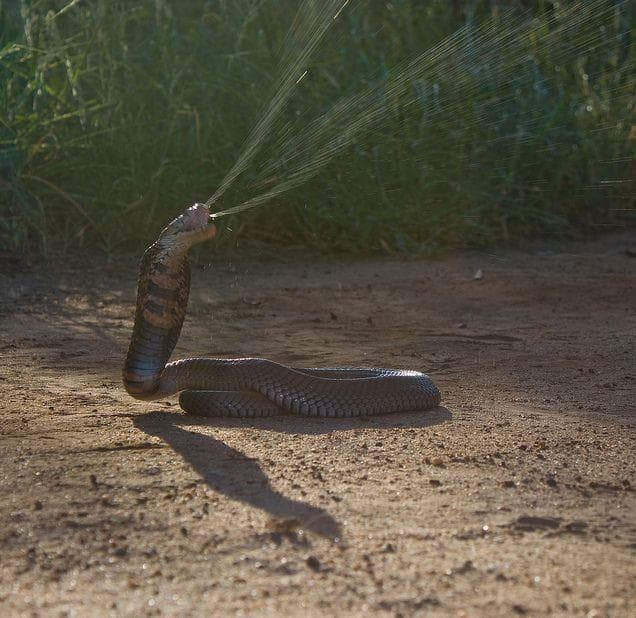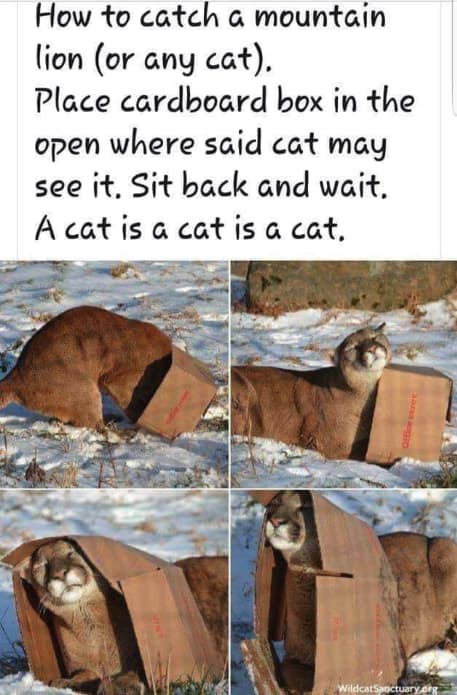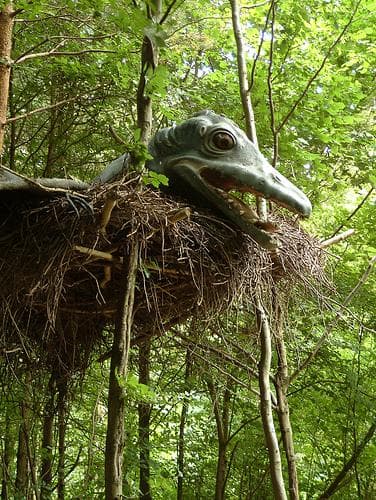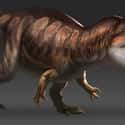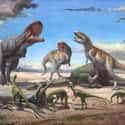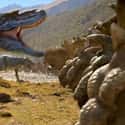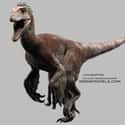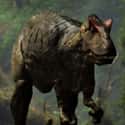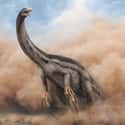-
(#1) Giganotosaurus
Size: 43 feet (13 meters) in length and weighing in at around 15.2 tons
When They Lived: Late Cretaceous, 98 to 97 MYA
Distinguishing Features: When it comes to a distinguishing feature, the Gigantosaurus' size is what separates it from most other theropod dinosaurs.
Why You Should Be Scared: Gigantosaurus was one of the largest known terrestrial carnivores. Were you to somehow wake up in the late Cretaceous period and stumble upon one, it might decide to swoop down and bite you in half, which it could easily do. Some specimens have indicated they could grow much larger than the infamous T-Rex, but their size alone wasn't their biggest concern to its prey; it was fast. It is believed to have been able to run up to 31 mph (50 km/h) making it a tough animal to run away from... for very long.
-
(#10) Rajasaurus
Size: 11 meters in length with a weight of approximately four tons.
When They Lived: Late Cretaceous about 66 MYA.
Distinguishing Features: The Rajasaurus possessed a distinctive low rounded horn, which was made up of outgrowths from the nasal and frontal bones. They had small arms, which may have been somewhat useless, but their legs were massive and powerful.
Why You Should Be Scared: Well, you really shouldn't. Unless you have a skeleton fall on you at a museum, you don't have much to worry about. Now, if you happen to build a time machine and check one of these guys out while they were still romping about the supercontinent Godwana, they might chase you down and eat you without even batting an eye.
-
(#8) Gorgosaurus
Size: 30 feet (9 meters) in length and weighing it at approximately 3 tons.
When They Lived: Late Cretaceous, 76.6 to 75.1 MYA.
Distinguishing Features: Their most distinctive feature would have to be it's tiny, useless forearms, which were typical of large theropod dinosaurs.
Why You Should Be Scared: These nasty critters come from the same family as the dreaded Tyrannosaurus Rex. Their size, speed, and particularly nasty teeth make them a dinosaur you probably wouldn't want to stumble upon on a particularly "hungry" day.
-
(#3) Utahraptor
- Utahraptor
Size: These were the largest of these types of dinosaurs having, achieved a size of up to 19 feet (8.7 meters) in length.
When They Lived: Early Cretaceous, 126 MYA.
Distinguishing Features: They were likely covered with a down-like feather with some larger plumage along their heads and appendages. Their most distinctive feature was their enlarged claw on each foot. These could reach a length of up to 9.4" (24 cm).
Why You Should Be Scared: If you watched Jurassic Park and insisted the creature called the Velociraptor didn't really live up to its ancient inspiration, that's because it mostly resembled the Utahraptor. They were likely very fast and may have hunted in packs, making them deadly to animals far larger than a single individual.
-
(#6) Allosaurus
- Allosaurus
Size: 28 feet (8.5 meters) in length, though some fragmentary remains suggest it could achieve a size of up to 39 feet (12 meters).
When They Lived: Late Jurassic, 155 to 150 MYA.
Distinguishing Features: The Allosaurus looks strikingly similar to many of the theropod dinosaurs on this list, but possessed large, bony protruding fins atop its head. It's forelimbs were likely very useful in tearing up prey unlike many theropod dinosaurs that evolved in subsequent epochs.
Why You Should Be Scared: The Allosaurus was an apex predator who could pretty much dominate any fight it found itself in. A human would be of absolutely little to no consequence to it, but if it decided it wanted to taste one, it would be difficult to stop. You would probably have a very difficult time outrunning one as well, but laying down and playing dead might just mean you get stuck between its toes after it tromps all over you.
-
(#9) Therizinosaurus
- Therizinosaurus
Size: 33 feet (10 meters) in length. Their forelimbs were particularly long, reaching up to 11.5 feet (3.5 meters) in total length.
When They Lived: Late Cretaceous, 70 MYA.
Distinguishing Features: These large theropods had a distinctive large set of claws extending from their forelimbs. These grew to a length of 3.3 feet (1 meter) in length.
Why You Should Be Scared: These large creatures possessed enlarged claws on their forelimbs, which were likely used as either offensive or defensive weapons. There is little known about the species as a whole, given the lack of substantial fossil evidence. However, from what has been uncovered, they grew very large, were likely predatory carnivores, and could literally skewer a human with their claws.
New Random Displays Display All By Ranking
About This Tool
Dinosaurs were once one of the strongest animals in the world, divided into herbivorous dinosaurs and carnivorous dinosaurs. Even if the dinosaur was extinct 65 million years ago, humans still cannot stop exploring. When life first appeared on the earth, dinosaurs were the overlord of this blue planet for a long time. They have a wide variety of different types and are huge. They not only infringed other types of animals but also kill the same species.
This random tool introduces 10 types of prehistoric scariest dinosaurs, such as Tyrannosaurus Rex, Giganotosaurus, Utahraptorsome, etc., some have strong hind legs, some have sharp claws.
Our data comes from Ranker, If you want to participate in the ranking of items displayed on this page, please click here.


